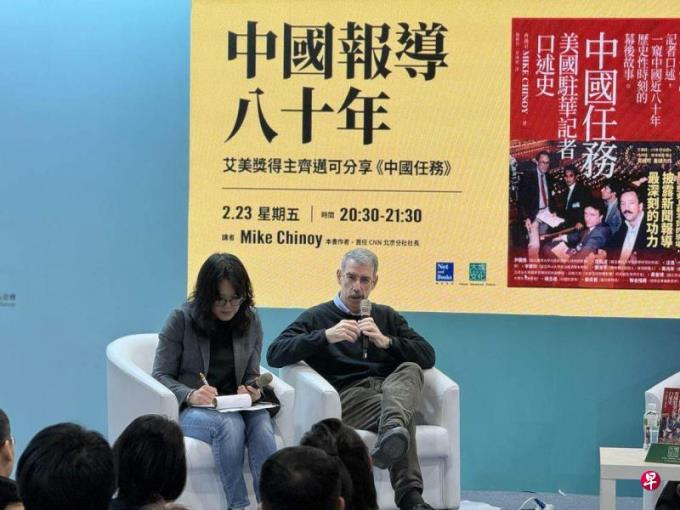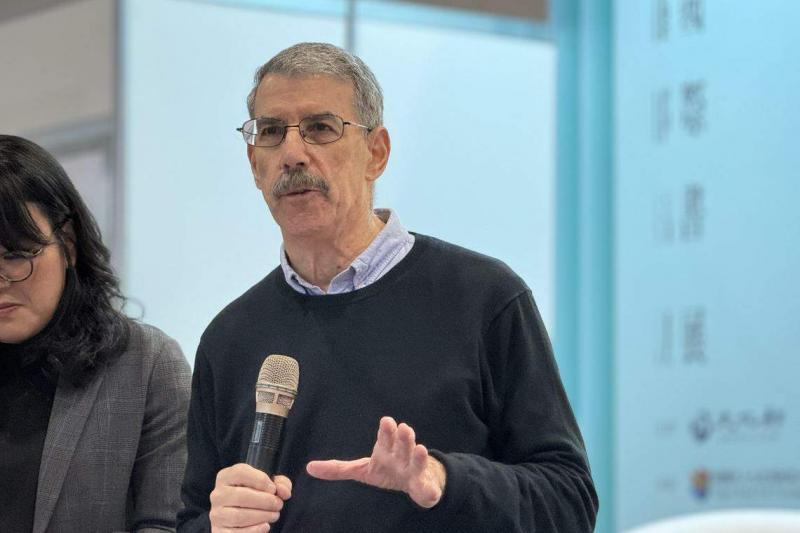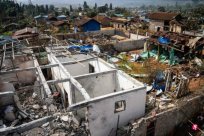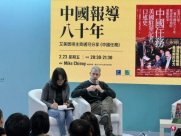
Mike Chinoy, a senior American reporter in China, pointed out on Friday (February 23) in Taipei.The higher the coming, this will make young foreign reporters more reluctant to invest in costs to learn Chinese. If the talents in China have faults, it may not help the world to know China.
With the intensification of the trade war and diplomatic wars between China and the United States, the two countries are in Over the past few years, they have been expelled with each other .In addition, foreign media are also facing compression in China due to crown disease and other factors.
Foreign CorresPondents ’Club of China Report last year mentioned that foreign journalists encountered restrictions on epidemic prevention measures, regular harassment and continuous monitoring during interviews in China.
Qimai, 72, is the first president of the Beijing Branch in the United States CNN (CNN). He has broadcast the Global Territory Turning Turns on the Global Incident.The CNN ExcelLlence Awards and other awards are senior American reporters in China and have experienced interviews in Asia.
He left the news position 31 years after his reporter, and became a researcher at the University of Southern California's US-China Institute and moved to Taiwan last year.
When he attended the new book lecture on the Taipei International Book Fair on Friday night, he talked about his views on the current interview environment in China.
Qi Maike said that as far as he knows, it is still difficult for foreign reporters to apply for visas to enter China for interviews. Therefore, more and more foreign journalists have transferred to Taipei to set up office and report from overseas to China.This phenomenon is similar to foreign journalists in the 1950s and 1960s that must be gathered in China that China under the rule of Mao Zedong.
Qi Mai pointed out that although reporters can be used on the Internet and other tools, they still face great obstacles to want to go deep into Chinese civil interviews.Most of the time, we can only report to China by interpreting official media reports and official documents, comparing the rhetoric, and trying to figure out the slogans and signals.
He believes that Chinese society is actually very rich and diverse, but it is increasingly difficult for foreign journalists to write deep stories, and ironic is that Chinese officials always hope that foreign journalists will "tell Chinese stories".
 />
/>
Qi Mai Ke also mentioned that from the 1960s to the early 1970s, young American journalists yearned for China and felt that it was an indescribable paradise, so it was actively exploring and learning.
He is worried. Although there are more ways to come into contact with China and the threshold for learning Chinese has become lower, the difficulty and risk of interviewing in China will increase.Input time cost learning will not help the world know China.
But Qi Mai believes that China is changing rapidly. Just like when he went to Shenzhen for the first time in 1973, he saw three bridges and five -headed bulls, like a wasteland, but now it is already a high -rise building.
Therefore, he believes that China's interview space is now under control, but it does not mean that such a severe environment will continue forever. He hopes that foreign journalists who are interested in China will continue to maintain enthusiasm.




